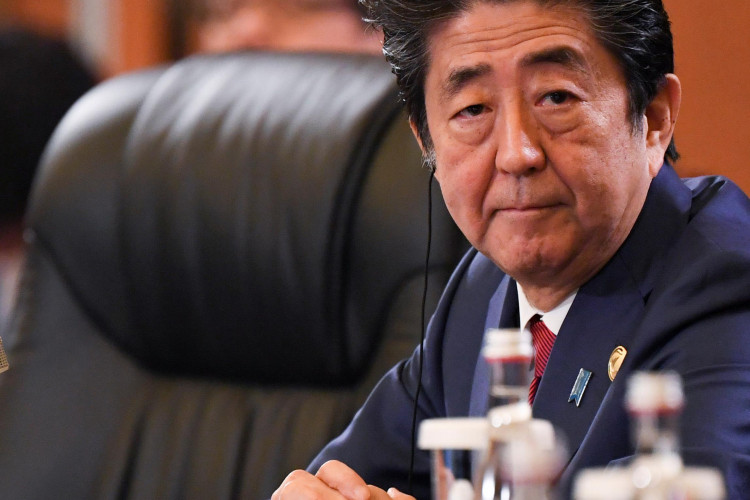The future of Abe Shinzo as Japanese prime minister is increasingly in doubt given a series of widely criticized mistakes starting with his fumbling response to the COVID-19 pandemic to protect the 2020 Tokyo Olympics. Already, there are rumors of a vote of no confidence being readied against Abe.
Abe then added to his growing list of misfortunes after his effort to extend the term of Hiromu Kurokawa, superintending prosecutor of the Tokyo High Public Prosecutor's Office, came to nothing when Kurokawa quit Thursday due to a gambling scandal.
Kurokawa resigned after a tabloid revealed he had played mahjong with journalists twice this month despite the state of emergency requesting Japanese avoid nonessential outings. In January, Abe had successfully pushed the Cabinet to extend Kurokawa's tenure past 63 years old, the legally mandated retirement age.
In March, Abe proposed a bill that sought to extend the retirement age for prosecutors and prosecutors-general to 65. This bill, if passed by the Diet, or Japanese Parliament, would have made Kurokawa prosecutor-general, the top post in the Public Prosecutors Office.
On Monday, however, the ruling coalition unexpectedly dropped the retirement extension bill that would have extended the retirement age for prosecutors.
Japanese anger Abe's huge errors in judgment were reflected in polling results. A poll by the newspaper, Mainichi Shimbun, released Saturday saw Abe's approval rating plunged 13 points to 27% from May 6 when the poll was previously taken. His disapproval rating jumped to 64% from 45%. A weekend opinion poll by the newspaper, The Asahi Shimbun, showed Abe's popularity plummeting to only 29%.
Almost 70% of voters in the Asahi poll said Abe had a "big responsibility" for trying to retain Kurokawa. The Asahi poll also showed 57% disapproved of how Abe handled the COVID-19 pandemic.
Political analysts said the huge plunge in Abe's popularity will likely weaken Abe's standing with his own Liberal Democratic Party (LDP). Worse for Abe, his growing unpopularity is triggering speculation he might resign before the end of his term as ruling party leader, and therefore prime minister, in September 2021.
Rumored as possible Abe successors are former foreign minister Fumio Kishida and ex-defense minister Shigeru Ishiba.
Gerry Curtis, a Columbia University emeritus professor, said Abe might perhaps be able to stop the decline in his ratings if the coronavirus situation doesn't worsen and as the Kurokawa scandal.
"But I can't see him regaining much ground. He is a lame duck at best and if the numbers go down any further a dead one."






